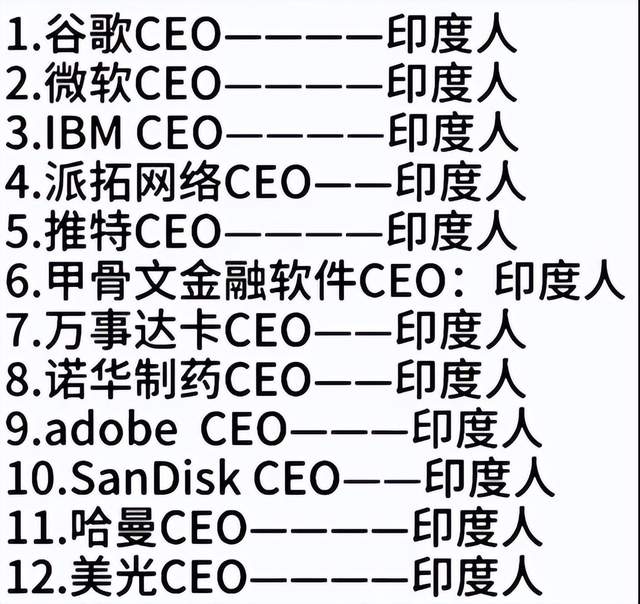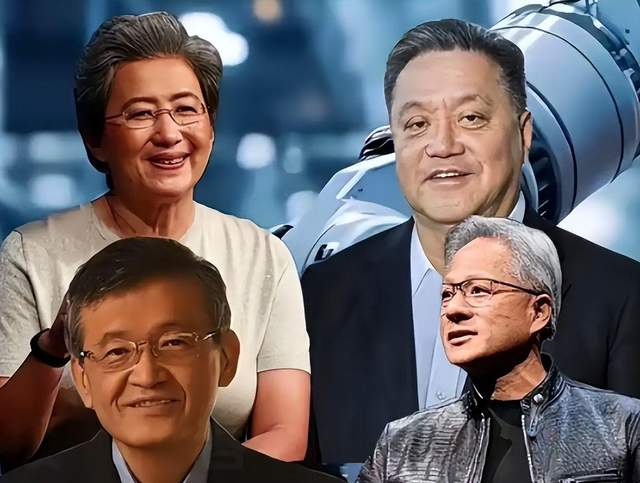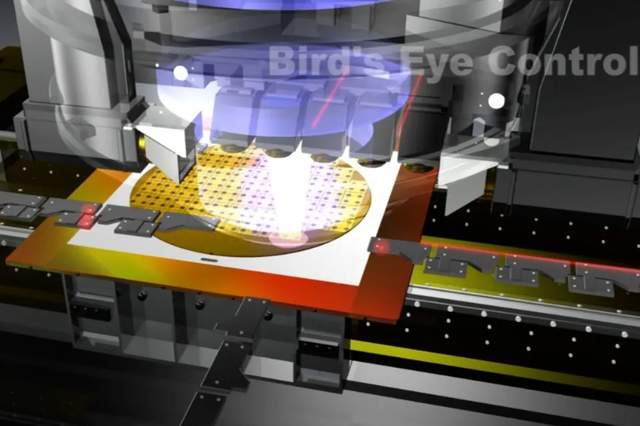Silicon Valley's Shifting Landscape: Chinese Executives Rise to Prominence
![]() 04/03 2025
04/03 2025
![]() 526
526
Have you observed that in Silicon Valley, numerous corporate CEOs are of Indian origin or descent?
Consider the likes of Satya Nadella of Microsoft, Sundar Pichai of Google, Parag Agrawal of Twitter, Arvind Krishna of IBM, Shantanu Narayen of Adobe, and George Kurian of NetApp—all Indians.

In many American companies, Chinese executives often found themselves struggling to compete with their Indian counterparts, who frequently ascended to the position of CEO, while Chinese professionals often did not.
Take Lu Qi of Microsoft as an example; despite having more seniority, higher prestige, and a more senior position than Nadella, he ultimately did not become Microsoft's CEO.
However, the current scenario is vastly different. The CEOs of Intel, NVIDIA, Broadcom, and AMD are all Chinese.
Increasingly, Chinese individuals are assuming pivotal roles in high-tech enterprises in Silicon Valley. In the future, we may witness more Chinese professionals stepping forward to replace Indians as CEOs of technology enterprises in Silicon Valley.

Why is this happening? It is intrinsically tied to the evolution of the times and the industry.
Previously, we were in the Internet and mobile Internet eras, collectively referred to as the IT era. Indians' prowess in the IT field was widely acknowledged, owing to their excellence in logical thinking and innate talent for mathematics and computers.
Therefore, during the Internet era in Silicon Valley, when a plethora of software, computer, Internet, and mathematics experts were in demand, Indians had a comparative advantage, enabling them to swiftly rise through the ranks in American companies and eventually become executives or even CEOs.

However, the current era is different. We are now in the AI era, the era of computing power, an era dominated by hardware, chips, and AI integration—a stark contrast to the previous IT era.
While Indians excel in IT, mathematics, and software, the focus has now shifted to hardware, chips, and AI, which are not their strengths.
Conversely, Chinese individuals have a clear edge. They possess talent and an advantage in physics, hardware, chips, AI, and the integration of multiple industries. Consequently, Chinese professionals are more trusted and more likely to be entrusted with significant responsibilities in Silicon Valley enterprises.
From Wei Su to Jen-Hsun Huang, to Hock Tan, and Ren Tan, this trend is highly illustrative.
Moreover, numerous AI enterprises founded by Chinese individuals in Silicon Valley are increasingly gaining attention from the global technology community, becoming a force that cannot be overlooked in Silicon Valley.
It can be said that the Internet/mobile Internet era benefited Indians, whereas the current AI era has propelled Chinese professionals to the pinnacle. This underscores how the times evolve; only by continuously innovating and keeping pace with the times can one achieve leadership in their field.







